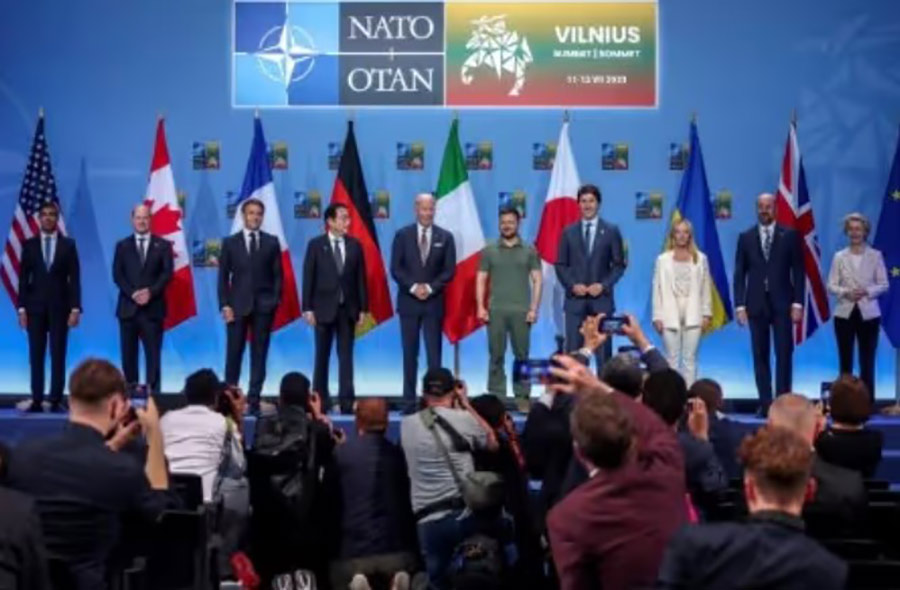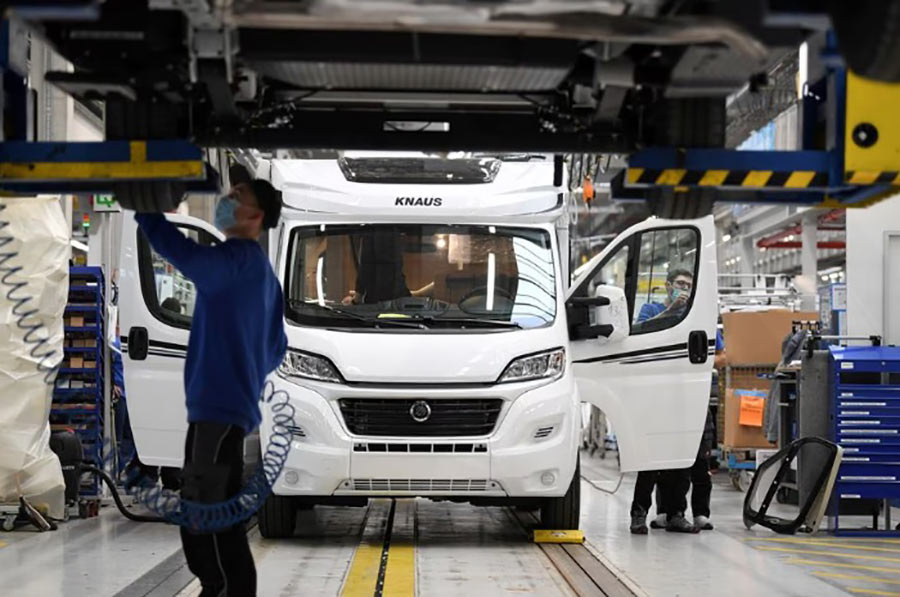By Hugo Dixon
LONDON- Russia’s invasion of Ukraine and the rising tension between the US and China have torn apart the global order. Different groups of countries are now vying for influence.
In this troubled world, the Group of Seven rich democracies is the best bet for keeping the peace and protecting the planet.
The G7 has several serious shortcomings and could struggle if the US turns inwards after next year’s presidential elections.
The Group of 20 large economies and the United Nations, both of which hold summits this month, are broken. Meanwhile, the BRICS club of emerging economies, which added six new members last month, is a motley crew. The G7, at least, is a powerful and reasonably cohesive club.
It would, of course, be wonderful if the UN could keep the peace. That was the main task it was handed by the victors in World War Two. But it rarely achieved that goal because five founding members – the US the Soviet Union (now Russia), China, the United Kingdom and France – can veto decisions by its Security Council. Since Russian President Vladimir Putin attacked Ukraine, the UN has been mostly deadlocked.
Things are little better at the G20, which gathers in New Delhi later this week. The group, which gave growing powers like China and India a seat at the table, played a vital role in stabilizing the global economy after Lehman Brothers went bust in 2008. But that was before China and the US were at loggerheads and Russia had shown the full ferocity of its aggression.
Indian Prime Minister Narendra Modi wants the G20 to agree on various useful things, such as channeling more finance to developing countries to help them fight climate change. But it is fiendishly hard to get deals on anything controversial because all G20 members have a veto. What’s more, Putin won’t attend this year’s summit and Chinese President Xi Jinping may skip it too.
A newer group competing for influence is the BRICS. The club – an acronym of Brazil, Russia, India, China and South Africa – has achieved little positive since it held its first summit in 2008. This is unlikely to change after it decided last week to add six new members: Argentina, Ethiopia, Egypt, Iran, Saudi Arabia and the United Arab Emirates.
Apart from Saudi Arabia and the UAE, the new members are hardly economic powerhouses.
The other four have a combined GDP of just $1.6 trillion this year, according to the International Monetary Fund. That’s 1.5 percent of total world output.
All except Argentina are rated “unfree” by Freedom House, the US non-profit organization.
Ethiopia has been fighting a series of wars while Saudi Arabia is a key player in Yemen’s brutal civil war. So don’t expect the expanded BRICS to do anything to advance freedom or peace. And as Iran, Saudi Arabia and the UAE are big oil and gas producers, the enlarged group is unlikely to lead the fight against climate change.
Many large developing countries haven’t joined the BRICS. These include countries such as Mexico, Indonesia, Turkey, Thailand, Nigeria, Vietnam, Malaysia, the Philippines and Bangladesh; their collective GDP will be $6.9 trillion this year.
India and Brazil may also be out of place in an expanded group which China seems to be dominating. Both are democracies and don’t want to be part of an anti-American bloc.
That leaves the G7, which brings together the US Japan, Germany, the United Kingdom, France, Italy and Canada. This club also has weaknesses. The US has struggled to convince the rest of the world that it stands for a rules-based order, especially after the invasion of Iraq in 2003 and Donald Trump’s chaotic presidency. Other members, especially Japan, Britain and France, have imperial pasts which undermine their credibility in some parts of the world.
The group’s recent track record of supporting less fortunate nations is also poor. The rich democracies were slow to provide vaccines to poorer countries during the Covid-19 pandemic. They have still not met their promise to mobilize $100 billion a year in climate finance for developing countries, although they are pledging to do so again this year.
That said, the US seems to have learnt the lesson that it’s normally foolish to invade other countries. President Joe Biden’s administration also realizes the country cannot contain China on its own, which means its allies have the potential to shape some policies.
The club is economically strong. Including the European Union, which attends its meetings as a non-voting member, the combined output of the countries around the table is $54 trillion – just over half the global total. – Reuters





